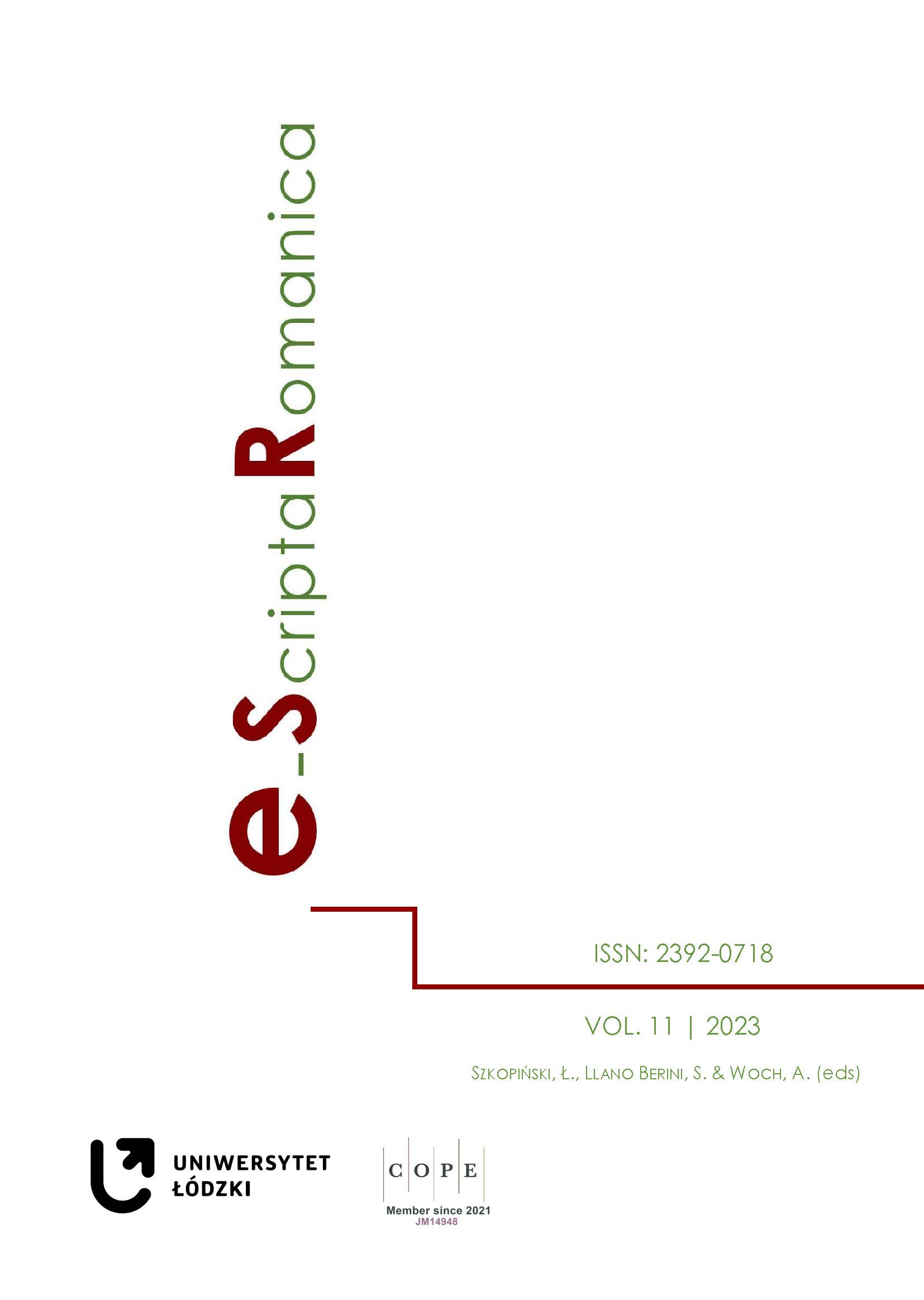Spanish as a heritage language in mixed language classes. Challenges for teaching
DOI:
https://doi.org/10.18778/2392-0718.11.04Keywords:
Spanish as a heritage language, mixed classes, Spanish Didactic, didactic differentiationAbstract
This paper explores the situation of Spanish heritage speakers in Switzerland who have chosen to study Spanish as a foreign language at high school. Specifically, this contribution aims to explore: a) the reasons they had for choosing these courses; b) the advantages and difficulties they have in Spanish classes; and c) the most productive activities for language learning. To this end, 23 students who speak Spanish as a heritage language completed a questionnaire about their experiences in high school Spanish language classes. These classes are attended by students with different levels of Spanish, which poses a challenge for teaching. In their responses, heritage speakers stated that they chose Spanish courses because they had prior knowledge and wanted to improve their proficiency. They mentioned having greater advantages in speaking and listening activities and difficulties with writing proficiency and metalinguistic knowledge. They valued supplemental readings and participation in oral interaction tasks as more productive. Addressing the diversity of these courses and the importance of including differentiated activities could have important benefits for students, teachers and the dynamics of these heterogeneous classes.
References
BURGO, C. (2019). Mixed classrooms: How do Spanish heritage speakers feel about the mix. In THOMPSON, G. L., & ALVORD, S. M. (eds.) Contact, community and connections. Current approaches to Spanish in multilingual populations, Vernon Press, pp. 305-322.
Google Scholar
CALDERÓN, R., FIBBI, R., & TRUONG, J. (2013). Arbeitssituation und Weiterbildungs-bedürfnisse von Lehrpersonen für den Unterricht in heimatlicher Sprache und Kultur (HSK). In Swiss Forum for Migration and Population Studies.
Google Scholar
EDSTROM, A. (2007). The mixing of non-native, heritage, and native speakers in upper-level Spanish courses: A sampling of student opinion. Hispania, pp. 755-768.
Google Scholar
DOI: https://doi.org/10.2307/20063610
EGLI, M. (2023). Français pour les bilingues: Förderung in der Herkunftssprache Französisch in der Deutschschweiz durch interne und externe Differenzierung. Babylonia Journal of Language Education, 1, pp. 34-39.
Google Scholar
DOI: https://doi.org/10.55393/babylonia.v1i.252
HERNÁNDEZ SAMPIERI, R., COLLADO, C. & BAPTISTA-LUCIO, M. (2014). Metodología de la Investigación. México: McGraw Hill.
Google Scholar
POTOWSKI, K. (2002). Experiences of Spanish heritage speakers in university foreign language courses and implications for teacher training. Adfl Bulletin, 33(3), pp. 35-42.
Google Scholar
DOI: https://doi.org/10.1632/adfl.33.3.35
POTOWSKI, K. (ed.). (2018). The Routledge handbook of Spanish as a heritage language. New York: Routledge.
Google Scholar
DOI: https://doi.org/10.4324/9781315735139
RANDOLPH, L. J., JR. (2016). The ‘Problem’ of the Mixed Class Dynamic: Teaching Spanish to Heritage Language Learners and Second Language Learners in North Carolina’s High School Classrooms. Immigration and Education in North Carolina: The Challenges and Responses in a New Gateway State. Ed. Xue L. Rong and Jeremy Hilburn. Boston: Sense, pp.167–193.
Google Scholar
DOI: https://doi.org/10.1007/978-94-6300-809-9_8
RANDOLPH, L. J., JR. (2017). Heritage Language Learners in Mixed Spanish Classes: Subtractive Practices and Perceptions of High School Spanish Teachers. Hispania,100(2), 274-288.
Google Scholar
DOI: https://doi.org/10.1353/hpn.2017.0040
REIMANN, D. (2021). Hablantes de Lengua de Herencia en las clases de Español como Lengua Extranjera en Alemania. Comunicación presentada en el congreso “El Español como Lengua de Herencia: retos educativos y perspectivas internacionales”. Universidad de Göttingen, 24 y 25 de junio de 2021.
Google Scholar
ROBIN, J. (2023) Ni Schulfranz. ni LCO… Quelle place dans le système scolaire pour le français familial à Bern? Babylonia, 1/23, Langues et cultures d’origine, pp. 40-45.
Google Scholar
DOI: https://doi.org/10.55393/babylonia.v1i.237
RUSSELL, B. D., & KURISCAK, L. M. (2015). High school Spanish teachers’ attitudes and practices toward Spanish heritage language learners. Foreign Language Annals, 48(3), pp. 413-433.
Google Scholar
DOI: https://doi.org/10.1111/flan.12145
SÁNCHEZ ABCHI, V, & CALDERÓN, R. (2016). La enseñanza del español como lengua de origen en el contexto suizo. Desafíos de los cursos LCO (Lengua y Cultura de Origen). Textos en Proceso, 2(1), pp. 79-93.
Google Scholar
DOI: https://doi.org/10.17710/tep.2016.2.1.4sabchicalderon
SCHWARZER, D. & PETRON, M. (2005). Heritage language instruction at the college level: Reality and possibilities. Foreign Language Annals, 38(4), pp. 568-578.
Google Scholar
DOI: https://doi.org/10.1111/j.1944-9720.2005.tb02523.x
VALDÉS, G. (1997). The teaching of Spanish to bilingual Spanish-speaking students: Outstanding issues and unanswered questions. In COLOMBI M. C. & ALARCÓN F. X. (eds.), La enseñanza del español a hispanohablantes: Praxis y teoría. Boston: Houghton Mifflin, pp. 8-44.
Google Scholar
VALDÉS, G., & PARRA, M. L. (2018). Towards the development of an analytical framework for examining goals and pedagogical approaches in teaching language to heritage speakers. In POTOWSKI, K. (ed.) The Routledge handbook of Spanish as a heritage language. New York: Routledge, pp. 301-330.
Google Scholar
DOI: https://doi.org/10.4324/9781315735139-20
Downloads
Published
How to Cite
Issue
Section
License

This work is licensed under a Creative Commons Attribution-NonCommercial-NoDerivatives 4.0 International License.











